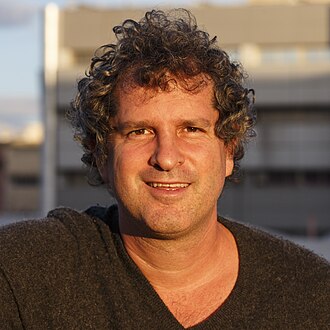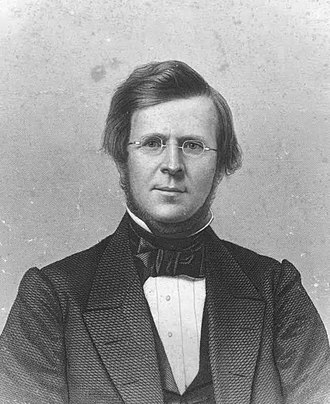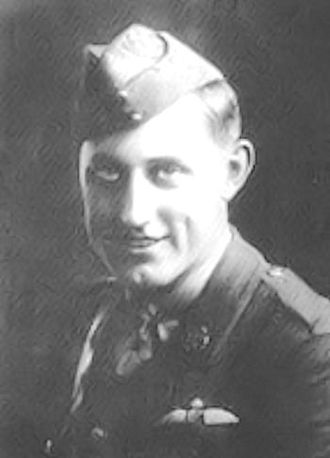Discover Your Roots
SIGN UPDiscover Your Roots
SIGN UPOren is a masculine given name of Hebrew origin, meaning 'Jerusalem Pine.' In Hebrew, the name signifies 'pine' or 'ash.' In the Book of Chronicles, Oren is noted as one of the sons of Jerahmeel, the first-born of Hezron. The name has been associated with various notable individuals, including Israeli basketball coach Oren Aharoni, Australian musician Oren Ambarchi, American football player Oren Burks, and Israeli filmmaker Oren Peli, among others. As a surname, Oren has been borne by prominent figures such as Israeli conductor Daniel Oren and Israeli diplomat and historian Michael Oren. The name Oren carries a strong Hebrew heritage and a connection to nature, making it a distinctive and meaningful choice for a male child.

Oren Spencer Burks, born on March 21, 1995, is a celebrated American professional football linebacker currently playing for the Cincinnati Bengals in the NFL. His journey to professional success began during his college years at Vanderbilt University, where his exceptional talent and performance earned him recognition as the Southeastern Conference defensive player of the week. He was later selected by the Green Bay Packers in the 2018 NFL draft, marking the commencement of his professional career. Burks has showcased his prowess with notable stints at the San Francisco 49ers and Philadelphia Eagles, culminating in a remarkable victory as a starter in Super Bowl LIX with the Eagles. His impressive athletic abilities and contributions have solidified his position as a prominent figure in the NFL. Burks' unwavering dedication and impactful presence on the field continue to inspire and captivate football enthusiasts worldwide.

Oren R. Lyons Jr., born in 1930, is a prominent figure in advocating for the rights of Indigenous peoples. He is a Haudenosaunee Faithkeeper of the Wolf Clan of both the Onondaga Nation and the Seneca Nation of the Six Nations of the Grand River. Lyons gained recognition as a college lacrosse player at Syracuse University and later founded the Haudenosaunee lacrosse team. Beyond his athletic achievements, Lyons has held leadership roles in the Indigenous Peoples of the Human Rights Commission of the United Nations for over 14 years. He has been actively involved in various movements, including the Red Power movement and the Trail of Broken Treaties. Lyons has made significant contributions to the Global Forum of Spiritual and Parliamentary Leaders on Human Survival and the Traditional Circle of Indian Elders. He has also been involved in international advocacy, addressing the General Assembly of the United Nations and coordinating with Maori land rights activists in New Zealand. Lyons' impactful work has been recognized through various honors, including an honorary Doctor of Laws degree from Syracuse University. He has been featured in documentaries such as "Faithkeeper" and "The 11th Hour." With his extensive involvement in promoting Indigenous rights and his remarkable contributions, Oren R. Lyons Jr. has left a lasting legacy in the fight for Indigenous rights and representation.

Oren Harman is a prominent Israeli writer and historian of science, renowned for his contributions to both academic and general audiences. Born in Jerusalem in 1973, Harman's academic journey led him to excel in history and biology at Hebrew University, as well as earning M.Sc. and D.Phil. degrees with distinction from Oxford University. His expertise spans various areas, including the history and philosophy of modern biology, evolutionary theory, altruism, and the historiography of the life sciences. Harman has authored and edited several influential books, such as "The Man Who Invented the Chromosome," "Rebels, Mavericks and Heretics in Biology," and "The Price of Altruism," which won the 2010 Los Angeles Times Book Prize in Science and Technology. Additionally, he co-created the television documentary series "Did Herzl Really Say That?" and has been featured in esteemed publications like Science, Nature, and The New York Times. Currently, Harman serves as a Senior Fellow at the Van Leer Jerusalem Institute and hosts the "Talking About Science in the 21st Century" public lecture series. His impactful work has been translated into multiple languages, reflecting his global influence and intellectual reach.

Oren Burbank Cheney (December 10, 1816 – December 22, 1903) was an influential American politician, minister, and abolitionist. He co-founded Bates College, the first coeducational college in New England, and was a prominent figure in the abolitionist movement of the 19th century. Cheney actively spoke out against slavery, advocated for fair representation and equality, and harbored and transferred slaves to safety during the 1840s, risking severe punishment. Ordained as a minister in his early twenties, he later became a Free Soil legislator, working on bills supporting prohibition and temperance. Cheney's dedication to anti-slavery efforts extended to his role as the only delegate from Maine at the 1852 Free Soil Party Convention, where he famously advocated for anti-slavery and stood up for Frederick Douglass, a noted abolitionist. Following his political career, Cheney continued to publish anti-slavery pieces and established the Maine State Seminary, later named "Bates College," where he served as the first president for nearly four decades, shaping its liberal arts curriculum and campus. Born to noted abolitionists, Moses and Abigail Cheney, Oren Burbank Cheney was deeply influenced by his family's religious background and upbringing, which shaped his philosophical ideologies and personal convictions.

Captain Oren John Rose, often known as O. J. Rose, was a distinguished World War I flying ace, achieving 16 aerial victories during his service. He joined the Royal Flying Corps in 1917 and was assigned to 92 Squadron, where he showcased his exceptional skills by tallying up his victories between July and November 1918, ultimately becoming the top scoring ace of No. 92 Squadron RAF. After World War I, Rose fought in the Russian Civil War before returning to the US and pursuing a career in business. During World War II, he joined the U.S. Army Air Corps, holding various positions of responsibility. His notable achievements earned him the Distinguished Flying Cross (DFC) and DFC Bar for his gallantry and exceptional leadership. Captain Oren John Rose's legacy lives on as one of the most celebrated World War I flying aces from the United States.
All images displayed on this page are sourced from Wikipedia or Wikimedia Commons.We use these images under their respective Creative Commons or public domain licenses. Wherever applicable, author attributions and license information are provided. If you believe an image is used incorrectly or outside its license terms, please contact us so that we can review and correct the issue.